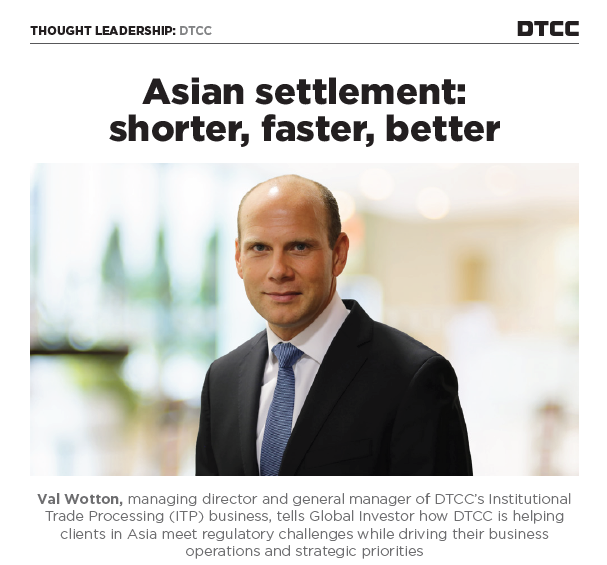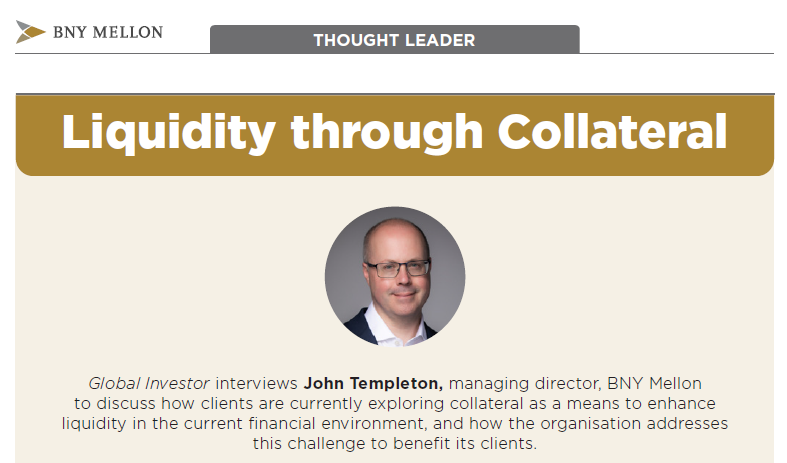Transition Management Guide 2023 - Virtual Reality

Virtual Reality
Over the last 12 months a number of high profile business leaders have called for a return to office working – so where does the transition management industry stand on this issue?
This article is part of the 2023 Transition Management Guide, which can be accessed here.
Goldman Sachs CEO, David Solomon, is one of the financial services heads to have called for a return to staff working from the office. Last year he described remote working as an aberration that was not conducive to productivity, adding that he did not think it was ideal for a business with an innovative, collaborative apprenticeship culture.
According to Cyril Vidal, head of portfolio transition solutions at Goldman Sachs, these values are particularly relevant for transition managers who need to collaborate, to change and improve their processes.
“We have juniors joining who need to learn the ropes so apprenticeship is very important to us and that requires that people spend the majority of their time in office,” he says.
“On the flip side, what is quite nice about transition management is the fact that there are natural cycles in the workload. You can be very busy if you have executions, but at other time you may be doing analytical work, in which case whether you are at home or in an office may not make much of a difference. It is good to be able to have that flexibility and we certainly make the most of it.”
Vidal adds that if he were hiring a transition manager, he would ask where the transition was going to be managed from and would view it more positively if he knew that all the individuals involved were in the same location to maximise collaboration.
“If we need to monitor the settlement of assets, for example, I find it more productive if I go to the desk to talk to my operations team,” he says. “Nothing can replace that interaction.”
On-site demand
There has certainly been a renewed demand and expectation to return to on-site visits which enhance building rapport, trust, and transparency which can never be replaced in a purely virtual world.
That is the view of Ashish Patel, EMEA head of transition management at Citi, who also acknowledges that this approach has to be balanced against consideration of the environmental impact of frequent air travel.
“Video calls continue to play an important part in the ‘new normal’ post-pandemic environment,” he says. “However, in person meetings particularly benefit the most complex transitions as there is a direct dialogue on building rapport and understanding the client’s needs, identifying the biggest risks, and discussing the optimal solutions. It most certainly drives greater efficiency and transparency.”
Paul McGee, head of portfolio solutions EMEA at Macquarie Capital observes that the transition management team are spending more time in the office now than they have done at any time in the last three years and that the return of face-to-face meetings is notable.
“Clients are now willing to accept face-to-face meetings again, which is very encouraging and pleasing,” he says. “Amongst transition managers I am pretty certain that speak for them all when I say that there is more time being spent in the office. That said, hybrid working does appear to be here to stay depending on which firm you work for. Some are at the very extreme end of the spectrum and expecting people in the office five days a week, but I think the norm is more embracing of hybrid working and three to four days in the office is becoming commonplace from what we gather.”
Remote clients
While the transition management providers are back in the office, it is often the case that clients potentially aren’t so much, with McGee noting that there are still a number of clients he reaches out to try and get a meeting where the answer is that they are only in one or maybe two days a week.
“We embrace hybrid working as long as there is not a drop off in the quality of work or level of client service,” he says. “There is no doubt there are some benefits to the remote meeting – for example, due diligence meetings can be quite time consuming and involve an awful lot of attendees needing to be pulled together on the same day or same time. So remote meetings can be helpful when not everybody can attend on a certain day or time.”
Then there is the environmental factor, which he agrees should not be dismissed. Where significant travel is involved, is it really necessary to jump on a flight and incur huge costs (and obviously the environmental effect that goes with it) when it can be just as well covered remotely?
McGee explains that when you are looking to engage with a new client or get added to a transition panel there is usually a lengthy due diligence process, so you can’t get away from wanting to meet people in person, to make sure that what is being said in an RFP is actually correct, meet the people that have been referred to in these documents, and see the systems in action.
“That used to involve hosting the client in your office for somewhere between half a day and a whole day and bringing an awful lot of people into the room,” he says. “This required a great deal of planning and time consuming travel - now a due diligence meeting can easily be carved up into three or four small chunks.” “If they happen to be in the office and want to meet the traders and see the systems we have covered that off, but then when they just want to hear from compliance about controls this can be just as easily done on screen.”
Role dependent
An employee’s role will often determine how much time they are in the office and whether they can work remotely or spend more time working remotely. “For our transition team, in most cases our people are in the office the majority of the time,” says James Woodward, global head of State Street’s transition management business.
There are a number of reasons for this, the first of which being that it offers stability in terms of connectivity to data. If you are in a trading role, access to market data is very important. But there are other factors – if you are on the team and have new people to train, it is important to have a strong cohort of experienced people in the office – and communication is much easier when everyone is in the office.
“We haven’t restricted client contact since markets opened up again because we do want to be in front of our customers to understand their strategies and priorities and how we might be able to add value and position ourselves in response to customer demands,” adds Woodward.
There are components of the transition manager’s role that can effectively be done from a remote location, but equally there are components that can only be completed in the office agrees Andy Gilbert, EMEA head of transition client strategy, BlackRock.
“When you are in the thick of a trade there is immeasurable benefit to being on site in terms of the collaboration opportunities afforded with peers and managers,” he says. “There will always be a portion of the transition manager’s job that is best executed in the office.”
Nick Hogwood, EMEA head of transition management at BlackRock explains that the client decision to meet in person or virtually is often not a binary one and tends to be taken based on the motivation for meeting.
Client preference
“Amongst our clients, we have seen that most are happy to have weekly planning calls or trade progress calls virtually and these video-based calls are already an upgrade on the telephone-based calls held pre-pandemic,” he says. “However, for more substantial meetings - such as due diligence reviews or panel pitches - nothing beats meeting in person. Whatever the client preference is, it falls to the transition manager to accommodate that.”
Each firm finds their own balance as to what works for their teams and their clients. Whilst on the trading side there is more of a push to be back in the office full time, on the portfolio management side the majority of time has still been spent working remotely – although this tends to vary by client and personal circumstances.
That is the view of Chris Adolph, director of implementation services EMEA, Russell Investments, who adds that with mirror images of systems set up at the portfolio managers’ homes, it has never been easier - or more efficient - to work remotely.
“If anything, remote working has led to an overall increase in collaboration with all strategies and events being discussed by the whole transition team,” he says. “In our case there is no split by strategist or project manager - clients have a single point of contact that manages every aspect of the event.”
That is not to say they don’t leverage all aspect of the wider firm such as trading, compliance, operations, and quant (and each event has a back-up portfolio manager), but co-ordination with clients is made easier with a single contact point.
“Of course, it is preferable to have discussions face-to-face, but other than in pitches for events that was rarely the case in transition management with teams covering a wide geographical area,” says Adolph. “That said, the desire is still to strengthen those relationships and there is a strong preference to have update or due diligence meetings on a face-to-face basis.”
Found this useful?
Take a complimentary trial of the FOW Marketing Intelligence Platform – the comprehensive source of news and analysis across the buy- and sell- side.
Gain access to:
- A single source of in-depth news, insight and analysis across Asset Management, Securities Finance, Custody, Fund Services and Derivatives
- Our interactive database, optimized to enable you to summarise data and build graphs outlining market activity
- Exclusive whitepapers, supplements and industry analysis curated and published by Futures & Options World
- Breaking news, daily and weekly alerts on the markets most relevant to you




